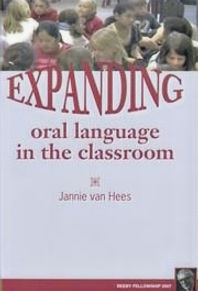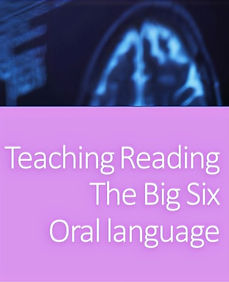

Photo credit: Steve Harper
Oral Language Supports
oral language
Oral language is a critical foundation of early literacy and an essential precursor for reading and writing skills, enabling children to make meaning of the world around them and participate fully in it; to negotiate social situations, build confidence and self-esteem, and fully access the school curriculum.
It is important that all children are able to continue to refine and extend their language skills so that they may access and use more complex vocabulary and language structures across all areas of the curriculum.
Language acquisition can be distinguished in two areas: BICS (Basic Interpersonal Communication Skills) and CALP (Cognitive Academic Language Proficiency). Jim Cummins’ Iceberg Model describes this language learning process, particularly when describing the acquisition of a new, second language.
More information and some of the support RTLB Cluster 8 can offer in the following areas is set out below:
-
Professional development support and strategies to support oral language development in the classroom.
-
The One Hand Approach (Annette Stock).
-
Hei Awhiawhi Tamariki ki te Panui Pukapuka (HPP).
-
English Language Learners (ELLs) and ESOL support and funding.
-
The Bilingual assessment service (BAS).

professional development support
Since speaking and listening skills are essential for both educational and social development, oral language teaching should be planned for and taught explicitly across the curriculum.
Professional development around strategies and approaches to support ongoing oral language development in the classroom could include:
-
Planning for talk.
-
Creating collaborative, language-based activities.
-
Supporting vocabulary development.
-
Encouraging Teacher Aides to support oral language.
-
Raising the quality of classroom talk.
-
Fun speaking and listening activities.
the one hand approach
The One Hand Approach (developed by Annette Stock) is a great way to support language development using images, picture books, or the world around you, (such as on a car journey, watching a sports match, etc.) In this approach an adult makes 4 comments and asks one question about what they are seeing, which allows children to hear familiar and new vocabulary with a visual link to support their understanding.

Image source: Jane and Greg Carroll, 2005
Hei Awhiawhi Tamariki ki te Panui Pukapuka (HPP)
Hei Awhiawhi Tamariki ki te Panui Pukapuka (HPP) means "Supporting children’s oral language development within English-medium storybook reading contexts".
HPP is a tutoring programme where teaching staff/parent tutors are trained to enrich students' oral language using the "One Hand Approach". For each picture in the book, they think of four statements they could make (four fingers) and one related question they could ask (the crucial thumb). They also look for examples of words that rhyme.
The emphasis is on enjoying the stories and developing phonological awareness.
Results of trials in seven low-decile schools in 1999 - 2000 showed that students made substantial gains in reading, phonological awareness, rhyme recognition, and vocabulary knowledge.
RTLB can support teaching staff and parents to use the One Hand Approach and HPP with tamariki.
Source: Literacy Online
English Language Learners
Support and funding is available for eligible ESOL students. The Ministry of Education website provides helpful information on their website including details about ESOL funding. NB: Eligible students may still need academic English language support when they have exceeded the funding period or criteria.
In our role as RTLB, we are able to support schools to implement strategies to develop and extend students' oral language skills.
The Learning Village NZ
This is an online ESOL programme which is available to intermediate and secondary schools. It helps students who are new learners of the English language. More information about the programme and how it works is available here: Learning Village and at ESOL Online.

Image source: ESOL online
Bilingual Assessment Service
If you have an English language learner (ELL) who has been in the school system for at least 2 terms with extra support through ESOL funding and is still not making progress, one of your next steps might be to contact the Bilingual Assessment Service (BAS).
A bilingual assessment adds to your understanding of a student's functioning and achievement in their first language. It collects information about what might be impacting on learning (for example, social and emotional health).
In Cluster 8, we have trained assessors who can help to distinguish between language learning needs and additional learning support needs, including social/emotional needs, through a dual assessment process in the student's first language and English.
More information about the BAS can be found here and schools can speak with their School Liaison RTLB.
Other resources
Further excellent teaching resources are included below. Click on the images for more information about each one.
In September 2022, RTLBs Julie Nugent and Sarah Pearse presented a workshop on Teaching Reading - Oral Language. You can access all the presentation slides with detailed information below, by clicking on the image.
.jpg)





